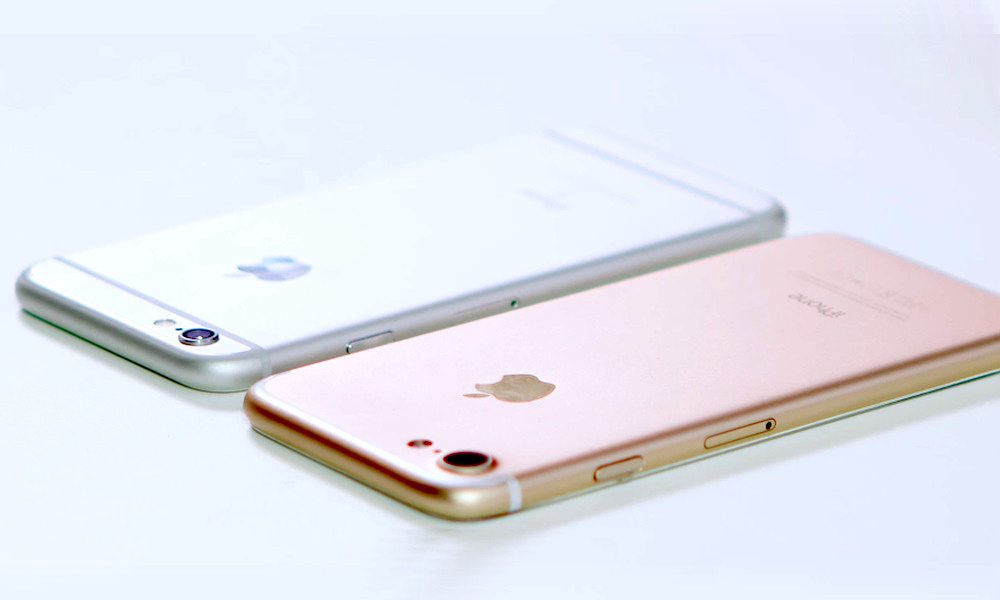iPhone 7 Expected to Be 35% Faster Than iPhone 6s, But What Does That Mean for You?

Toggle Dark Mode
Whereas most smartphone manufacturers tend to be transparent about the clock speed of their device’s CPU — such as, for instance, disclosing the #.# GHz of each core, Apple tends to keep things a bit simpler, especially when it comes to disclosing the speed of its A-series silicon to the end user. Unless you really, really want to know the actual speed, by looking into it yourself on major tech sites such as GSMArena, Apple will have you know that, year-over-year, its iOS devices are simply XYZ percent faster and more efficient than their predecessors.
For instance, the company’s beastly A9 chip employed in the iPhone 6s — a dual-core SoC clocked at 1.84 GHz per core, according to GSMArena — as far as the end user should be concerned, is just about 30% faster than the company’s previous generation A8 chip.
The Cupertino-company’s ‘A10’ chip, therefore, which is slated to debut tomorrow in the ‘iPhone 7’, should be faster, to whatever extent, than the A9 chip, right? Well, over the weekend, apparently the prominent, well-connected KGI Securities analyst, Ming Chi Kuo, went on record suggesting that Apple’s forthcoming ‘A10’ silicon could be clocked at up to 2.4 GHz per core.
However, without revealing any information pertaining to GHz or speed, a recent GeekBench score that surfaced online appears to show us that Apple’s ‘A10’ SoC could perform up to 35% faster than the company’s A9 chip. To demonstrate the argument, Apple’s current-generation A9 chip (which is employed in the iPhone 6s) scored single-core and multi-core GeekBench scores of 2392 and 4031, respectively; whereas, for comparison’s sake, the ‘A10’ allegedly scored a whopping 3379 and 5495, respectively, on the same tests — suggesting that some pretty significant performance enhancements could be coming on Apple’s ‘iPhone 7’.
Additionally, for what it’s worth, the device that was tested to achieve this otherwise encouraging GeekBench score was only the 4.7-inch iPhone, and not the larger, 5.5-inch model — which has for long been expected to feature 3 GB of RAM, in comparison to the standard iPhone 7’s 2 GB.
So the performance of the former could actually be even greater in practice than on paper.
For some odd reason, however, the GeekBench scores appear to reflect an SoC clocked at just 396 MHz — not anything even remotely close to 2.4 GHz. Although, as we mentioned before, and as Twitter user @jfpoole pointed out, Apple doesn’t like to reveal the numerical clock speed of its A-series silicon; and therefore, historically speaking, GeekBench tends to just guess the clock speed for the sake of filing in the gaps during testing.
All things considered, if Apple’s A10 SoC does, in fact, deliver the anticipated performance boost over the A9 — and even the blazingly-fast A9X — iPhone 7 hopefuls should expect a huge improvement in performance this year.
Let’s be honest, though: the A9 is already a powerhouse to be reckoned with in its own capacity; so while the A10 could deliver some improved performance for iOS gamers and 4K video recording enthusiasts, it’s highly unlikely that the average user will notice a huge difference in basic, day-to-day usage — such as when web browsing, messaging, or casually navigating the iOS User Interface.
Even still, it’s another year, another iPhone upgrade — and, as such, Apple will all but certainly be improving its A10 performance to some extent over the A9. We’ll just have to wait until tomorrow morning to get the low down on exactly what extent of performance boost we’ll be dealing with, right?
What do you think about the ‘iPhone 7’s’ alleged performance boost? Let us know in the comments!
[The information provided in this article has NOT been confirmed by Apple and may be speculation. Provided details may not be factual. Take all rumors, tech or otherwise, with a grain of salt.]






